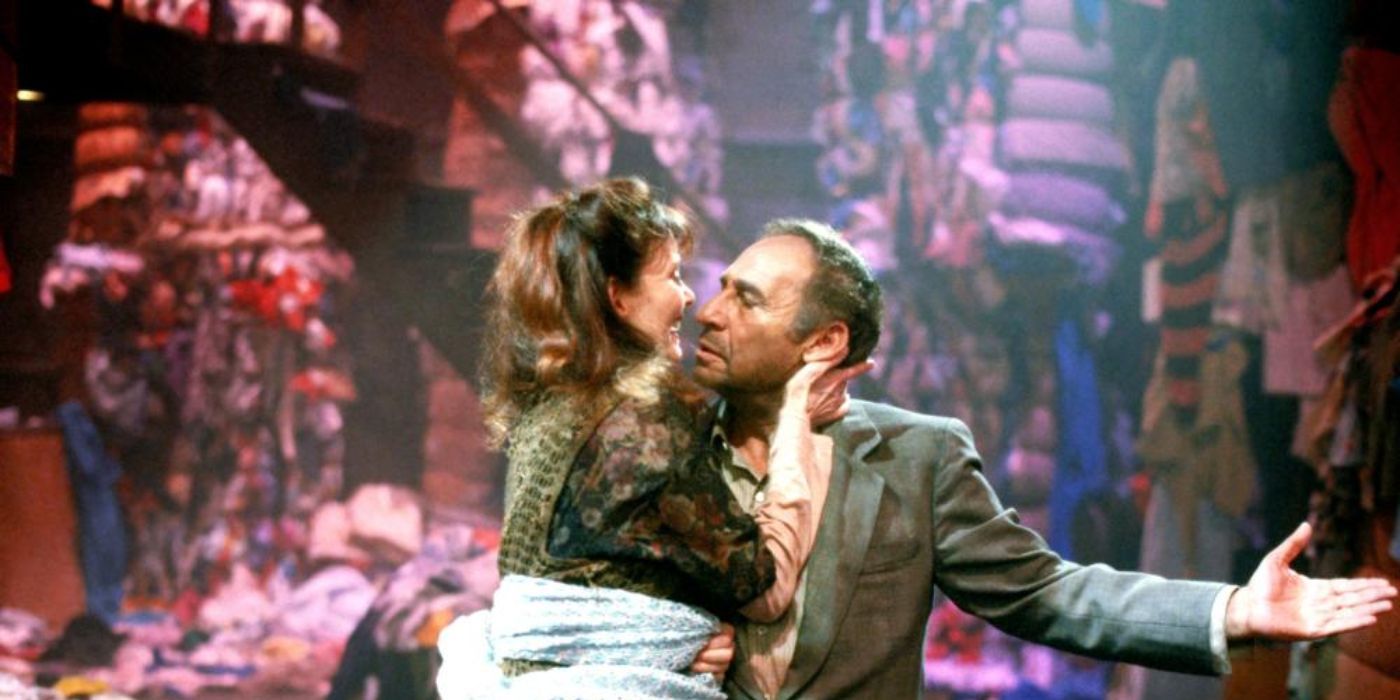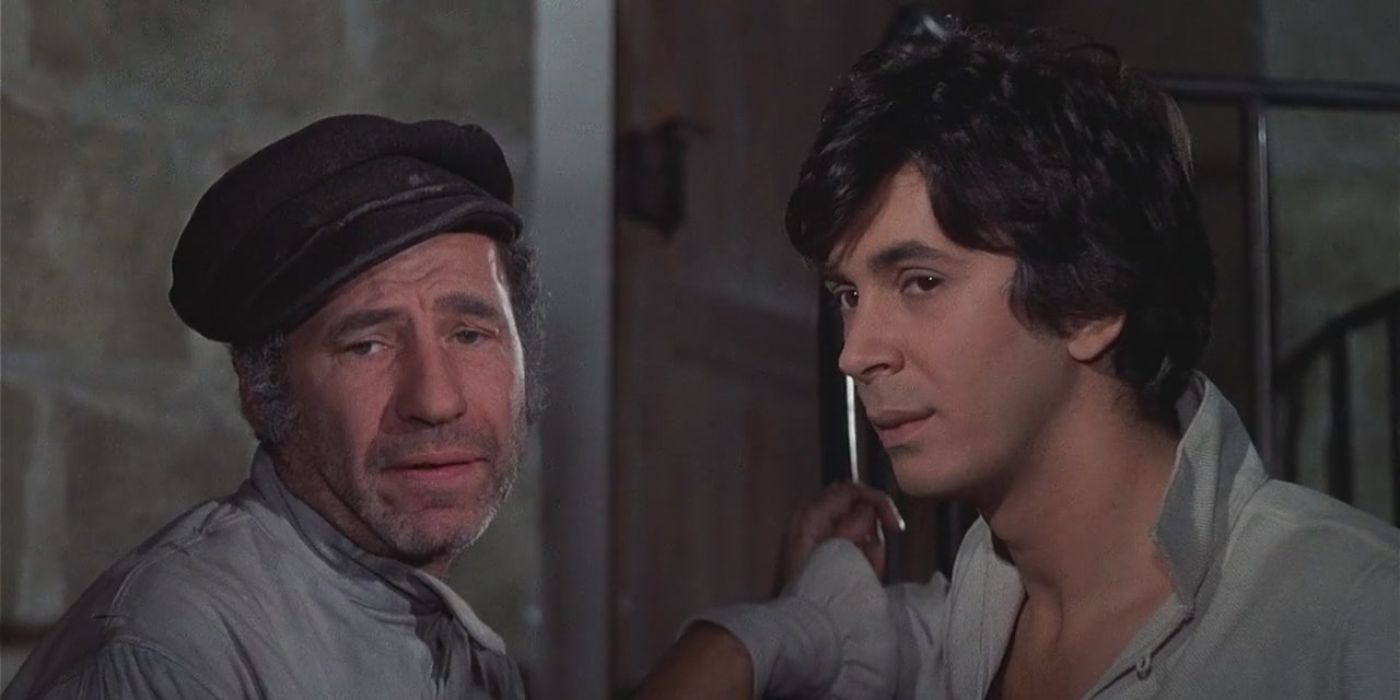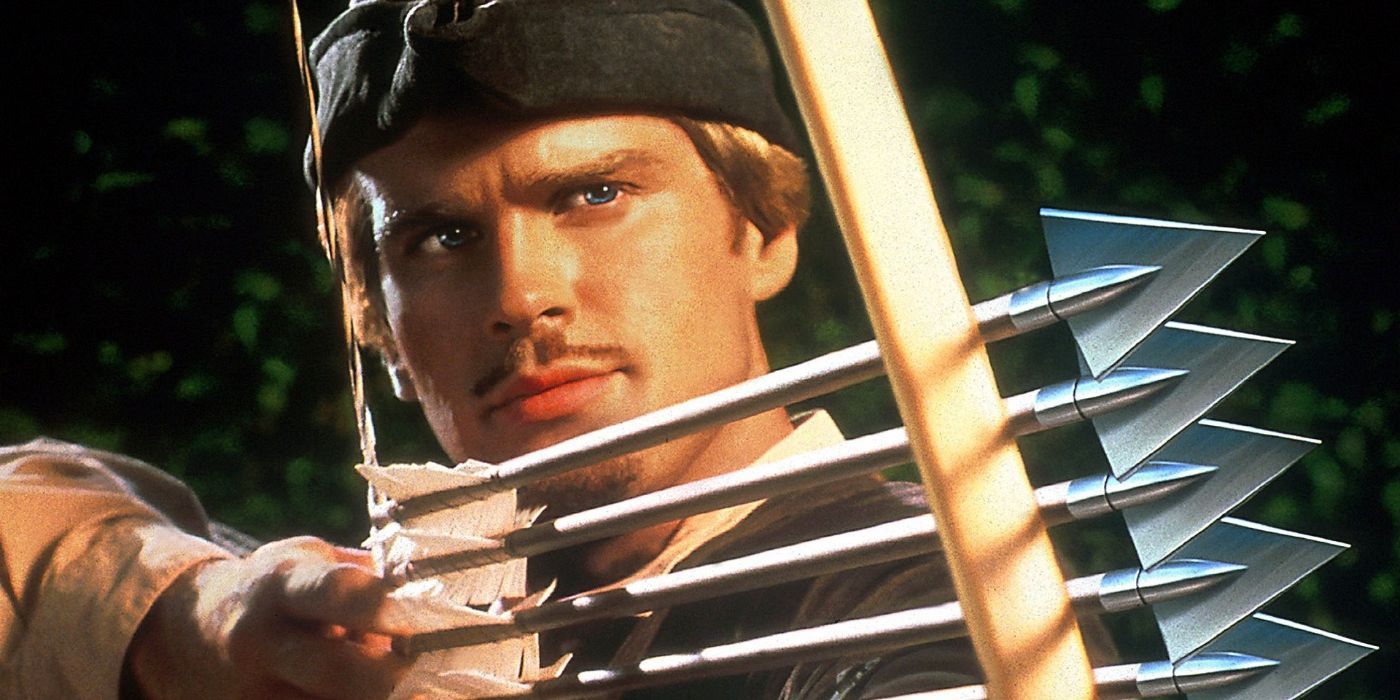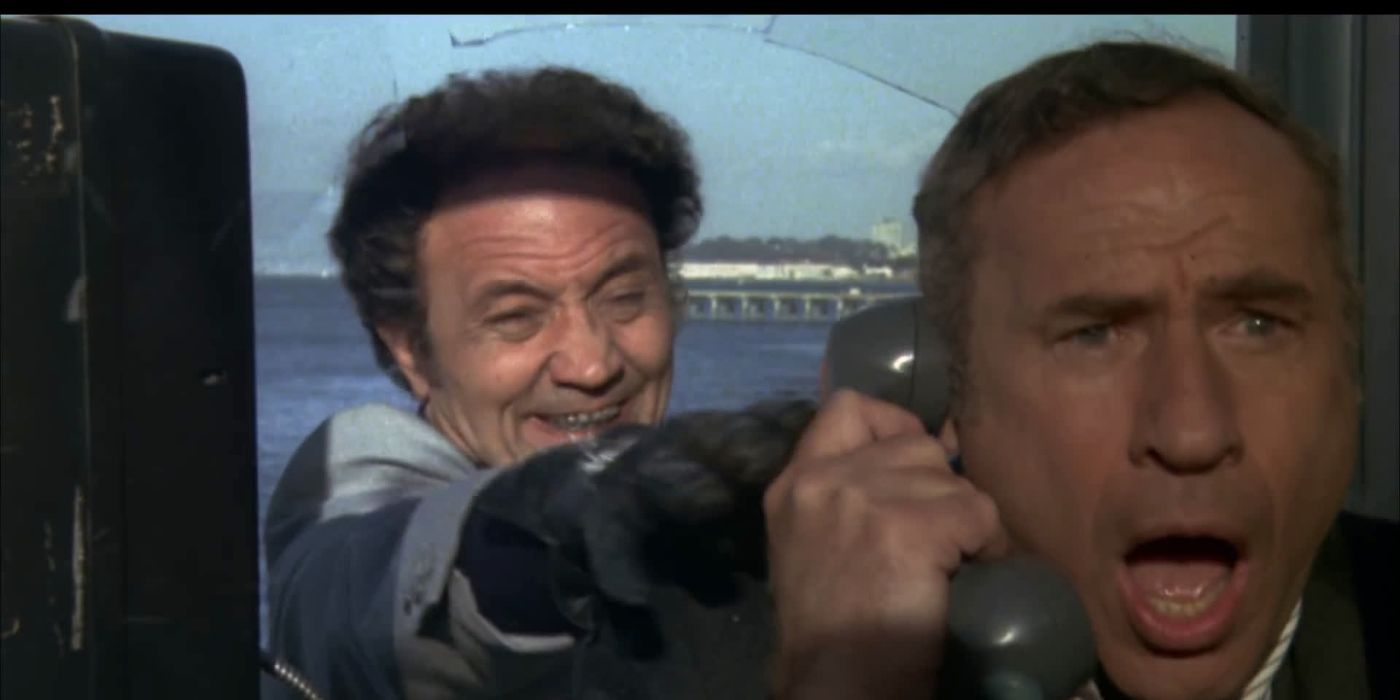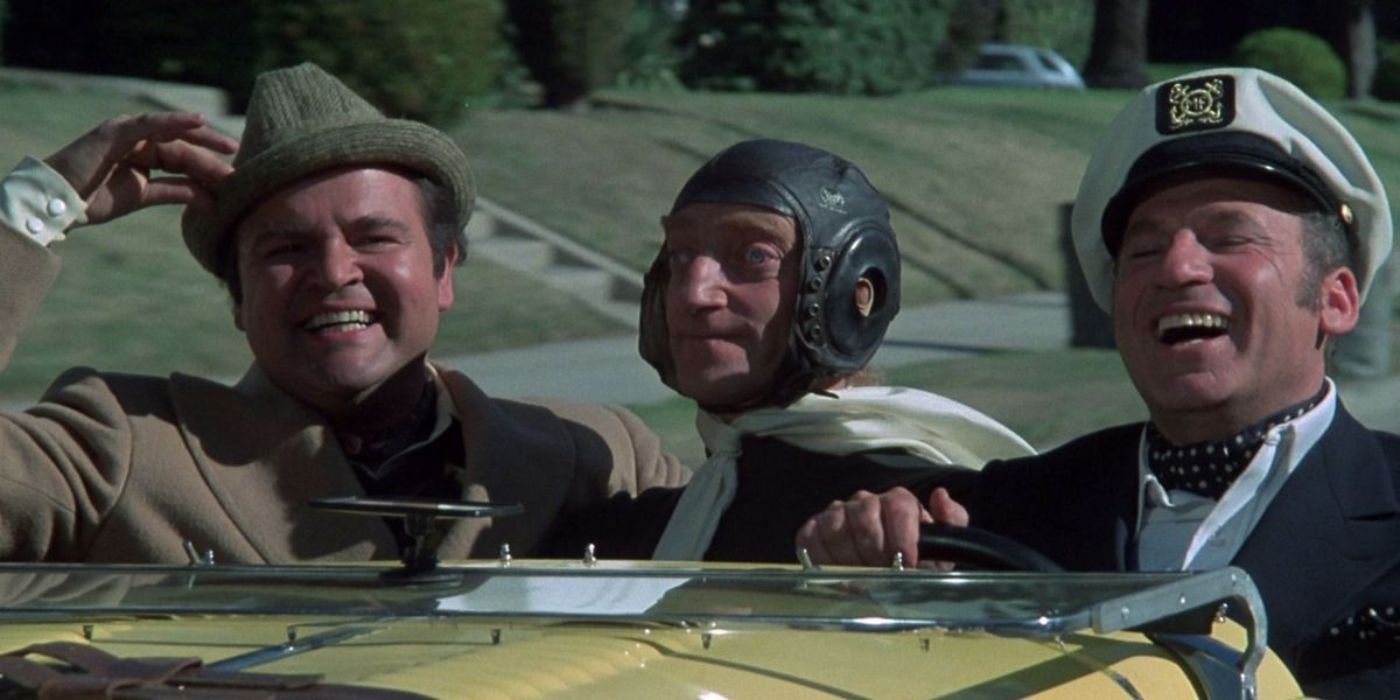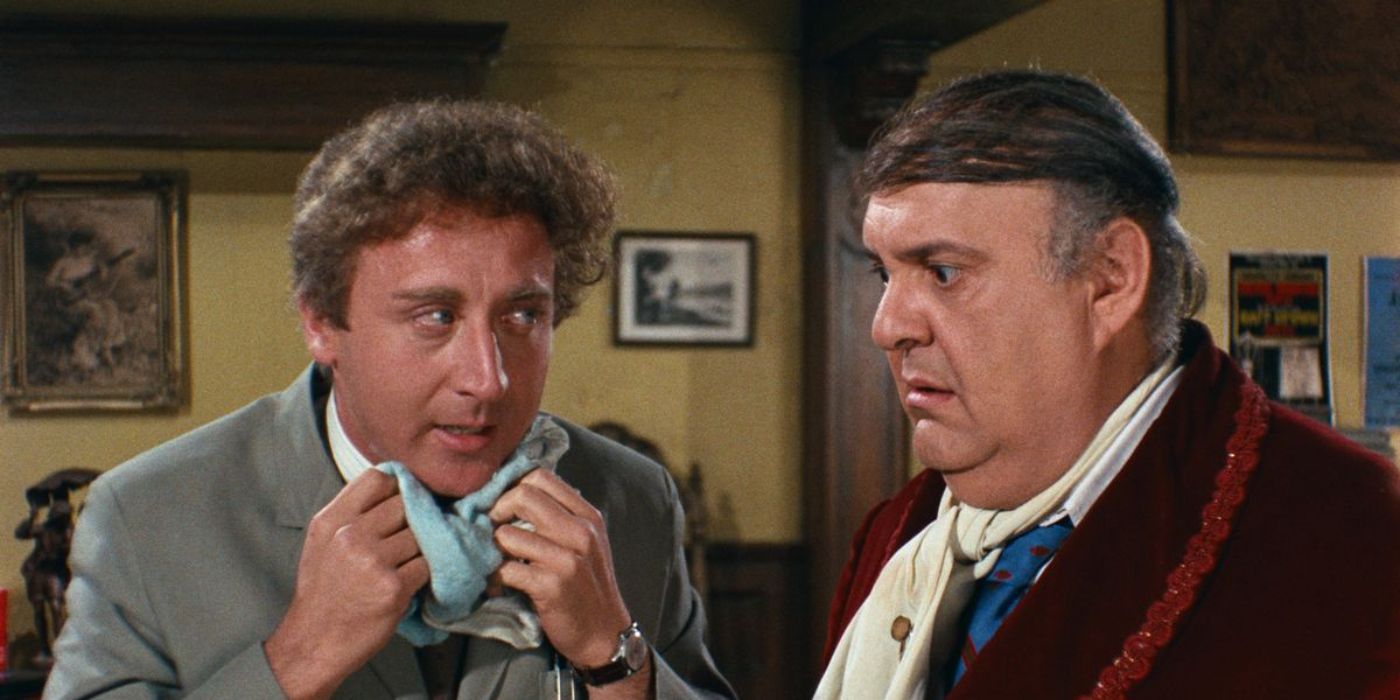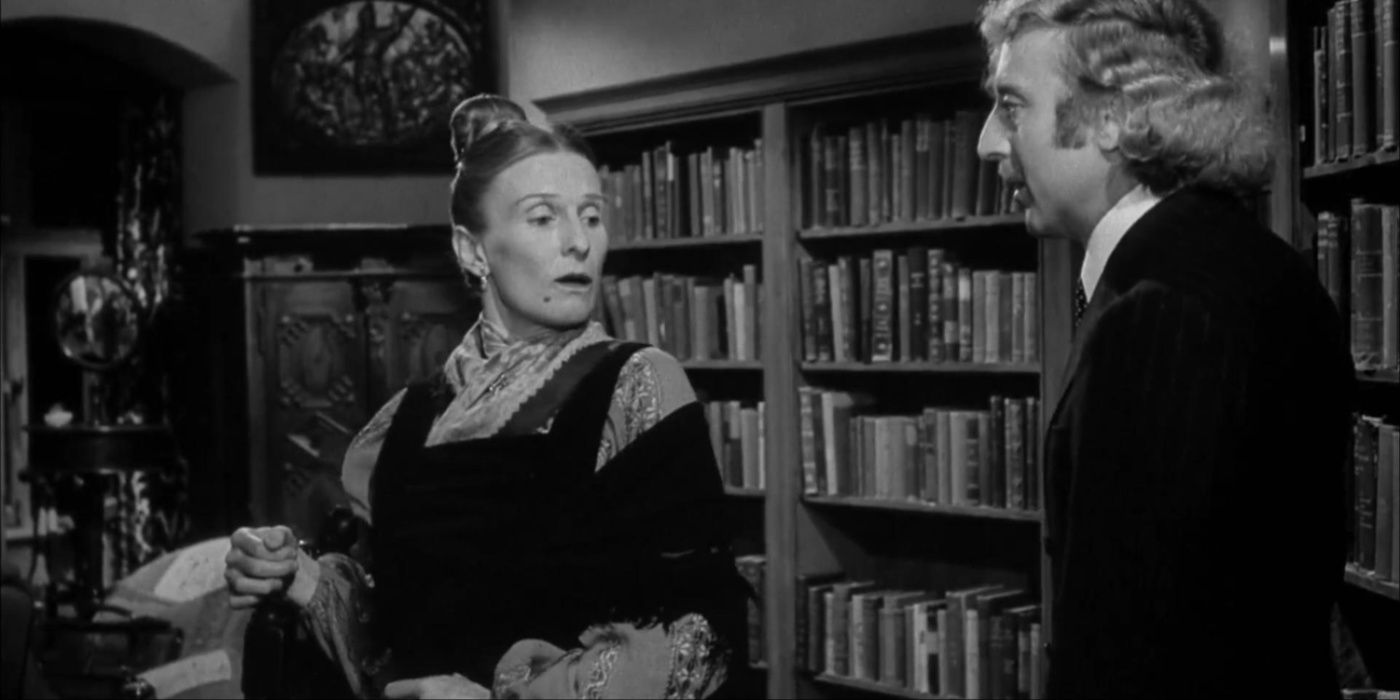Summary
- Life Stinks wasn't a hit, but Brooks showed depth in this film, which he's proud of.
- Twelve Chairs was a standout movie with Dom DeLuise, a comic master, winning hearts.
- Robin Hood: Men in Tights revived Brooks' career with key supporting cast members.
Comedy legend Mel Brooks is a national treasure, unquestionably one of the most important and influential figures in twentieth-century American culture. Brooks began his career as a comedy writer in the late 1940s and early 1950s, first gaining recognition for his work on Sid Caesar's Your Show of Shows. In 1965, Brooks created the seminal television series Get Smart, which went on to win seven Emmy Awards.
By the late 1960s, Brooks decided to shift his focus away from television, setting his sights on film directing. For the next 30 years, Brooks emerged as one of cinema's all-time great comedy directors through masterpieces such as Blazing Saddles, Young Frankenstein, and The Producers. A man in rare company, Brooks is one of only 19 entertainers to win an EGOT, which includes an Emmy Award, a Grammy Award, an Academy Award, and a Tony Award. A Kennedy Center Honor, the AFI Lifetime Achievement Award, a British Film Institute Fellowship, a National Medal of Arts, a BAFTA Fellowship, and an Honorary Academy Award are just a few of the many lifetime achievement awards Brooks has received in his career.
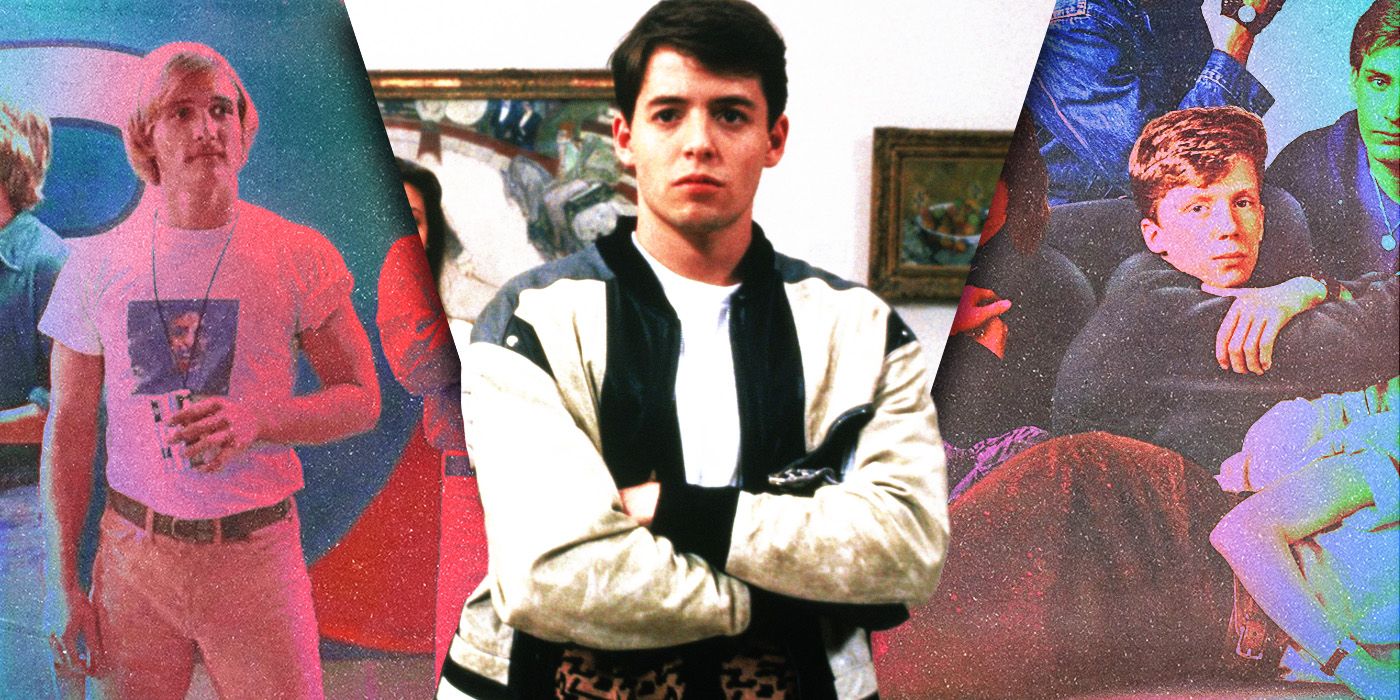
10 Best American High School Comedy Films, Ranked
The American High School comedy genre has been something that audiences always connect too and will continue to connect with for years to come.10 Life Stinks Is Among The Films Mel Brooks Is Most Proud Of (1991)
IMDb Rating: 5.9
While most of Brooks' comedies revolve around pure humor, Life Stinks gave Brooks a chance to demonstrate a more dramatic side to his work. In Life Stinks, Brooks stars as Goddard Bolt, a rich businessman who bets a corporate rival he can live on the streets of L.A. without the comforts of money. The homeless lifestyle proves more difficult than originally thought.
Some critics, such as Roger Ebert, praised Life Stinks for its warmhearted approach, but overall, the film was mostly panned by critics and was a massive box office flop. Throughout Brooks' filmography, movies such as History of the World: Part I and Spaceballs initially earned negative reviews, but over time, these films emerged as cult classics. The same cannot be said for Life Stinks, which remains one of Brooks' least-known works. Despite the poor reception, Life Stinks, along with The Producers and The Twelve Chairs, are the movies Brooks is most proud of.
9 The Twelve Chairs Was The First Of Six Collaborations Between Mel Brooks And Dom DeLuise (1970)
IMDb Rating: 6.4
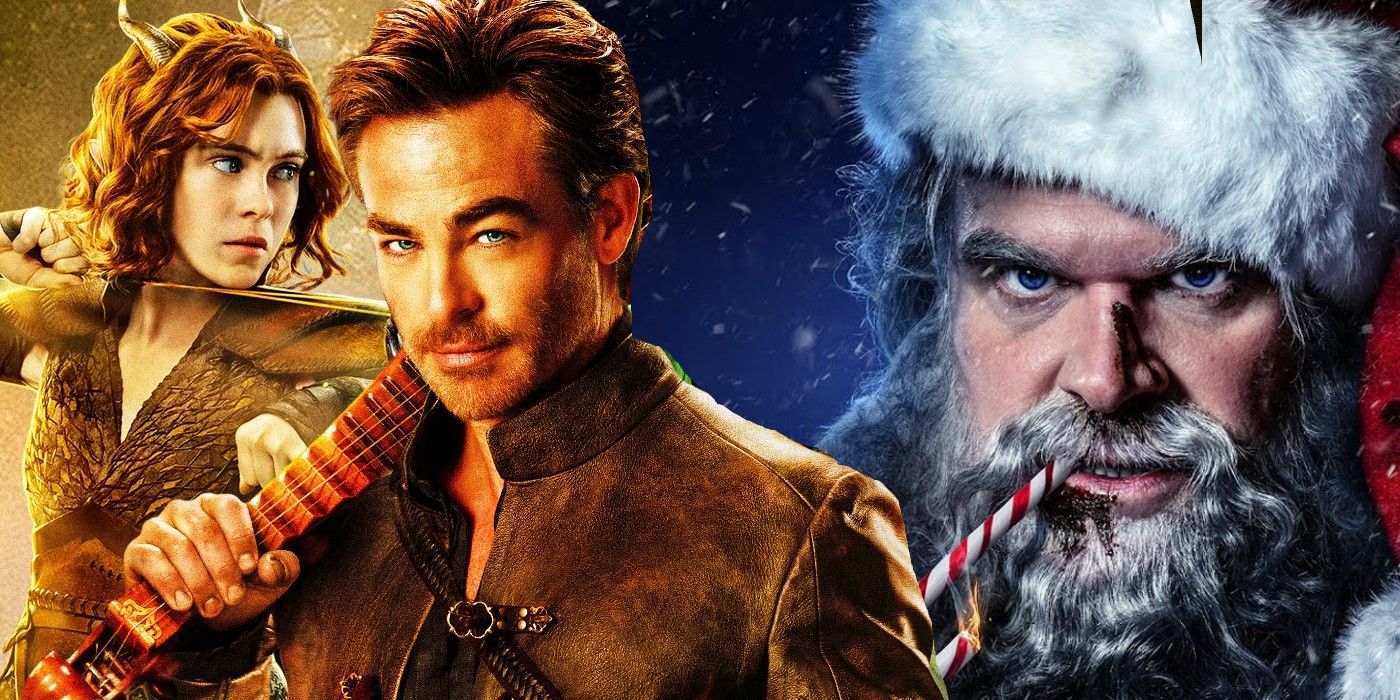
Best Comedy Movies To Watch On Prime Video
From hilarious genre parodies like Violent Night to inspiring films like Brittany Runs a Marathon, Amazon Prime Video is home to great comedy movies.Based on the famed 1928 Soviet satirical novel of the same name by IIf and Petrov, The Twelve Chairs is a period comedy about a fallen aristocrat, a priest, and a con artist who all search for a treasure of hidden jewels inside one of twelve possible chairs from the pre-Revolution days. The Twelve Chairs marked the first of six collaborations between Brooks and Dom DeLuise. Brooks' wife Anne Bancroft saw DeLuise on a television show called The Entertainers and recommended Brooks find a part for DeLuise in one of his movies.
The Twelve Chairs features great writing and excellent performances from Frank Langella, who won Best Supporting Actor from the National Board of Review, and Ron Moody, but DeLuise is truly the highlight of the film. A tour-de-force performance, DeLuise displays his mastery of physical comedy in The Twelve Chairs. Every movement, every gesture, every facial expression emanating from DeLuise's body induces uncontrollable laughter. The American Film Institute nominated The Twelve Chairs for their list of the greatest American comedies.
8 Robin Hood: Men In Tights Was The Penultimate Film Of Brooks' Directorial Career (1993)
IMDb Rating: 6.7
A hilarious parody of Robin Hood, Robin Hood: Men in Tights found Brooks returning to his trademark spoof formula after the dismal performance of Life Stinks. Robin Hood: Men in Tights stars Cary Elwes as the titular Robin Hood, who assembles a team of patriots to fight against Prince John and the Sheriff of Rotingham. The film features many comedic references to both The Adventures of Robin Hood and Robin Hood: Prince of Thieves.
Robin Hood: Men in Tights brought box office glory back to Brooks' oeuvre, with the film grossing $72 million worldwide. The film is notable for its delightful array of supporting performances by Richard Lewis, Dave Chappelle, Tracey Ullman, Patrick Stewart, Dom DeLuise, Dick Van Patten, and Brooks himself. However, the critical reception of Robin Hood: Men in Tights was not the result Brooks' desired. The vast majority of critics compared the movie unfavorably to Brooks' masterworks of the 1970s. Over the years, Robin Hood: Men in Tights developed a cult following, morphing this critical disappointment into one of Brooks' most beloved films.
7 Spaceballs Is A Dream Parody For Die Hard Science Fiction Fans (1987)
IMDb Rating: 7.1
By 1987, Brooks had already parodied Westerns, horror films, silent movies, Alfred Hitchcock, and historical dramas. It was now time for Brooks to take on science fiction, which had exploded in popularity during the late 1970s and through the 1980s. Spaceballs focuses on a star pilot for hire and his sidekick who must rescue Princess Vespa and save Planet Druidia from the evil Dark Helmet. Although predominantly a spoof of Star Wars, Spaceballs also parodies other science fiction and fantasy classics such as Alien, The Wizard of Oz, Star Trek, 2001: A Space Odyssey, and Planet of the Apes.
Upon its initial release, Spaceballs was only a moderate box office success, while critically, the film earned mixed to negative reviews from critics. At the Stinkers Bad Movie Awards, Spaceballs won Worst Picture. Throughout the 1990s, Spaceballs became a hit on home video, helping to turn the movie into a cult classic. Audiences fell in love with the film's endlessly quotable dialogue and stellar performances by Bill Pullman, John Candy, Daphne Zuniga, Joan Rivers, Rick Moranis, and Brooks himself. Spaceballs currently sits fifth on Ranker's list of the best cult comedies of all time.
6 Brooks Parodies Alfred Hitchcock In High Anxiety (1977)
IMDb Rating: 6.6
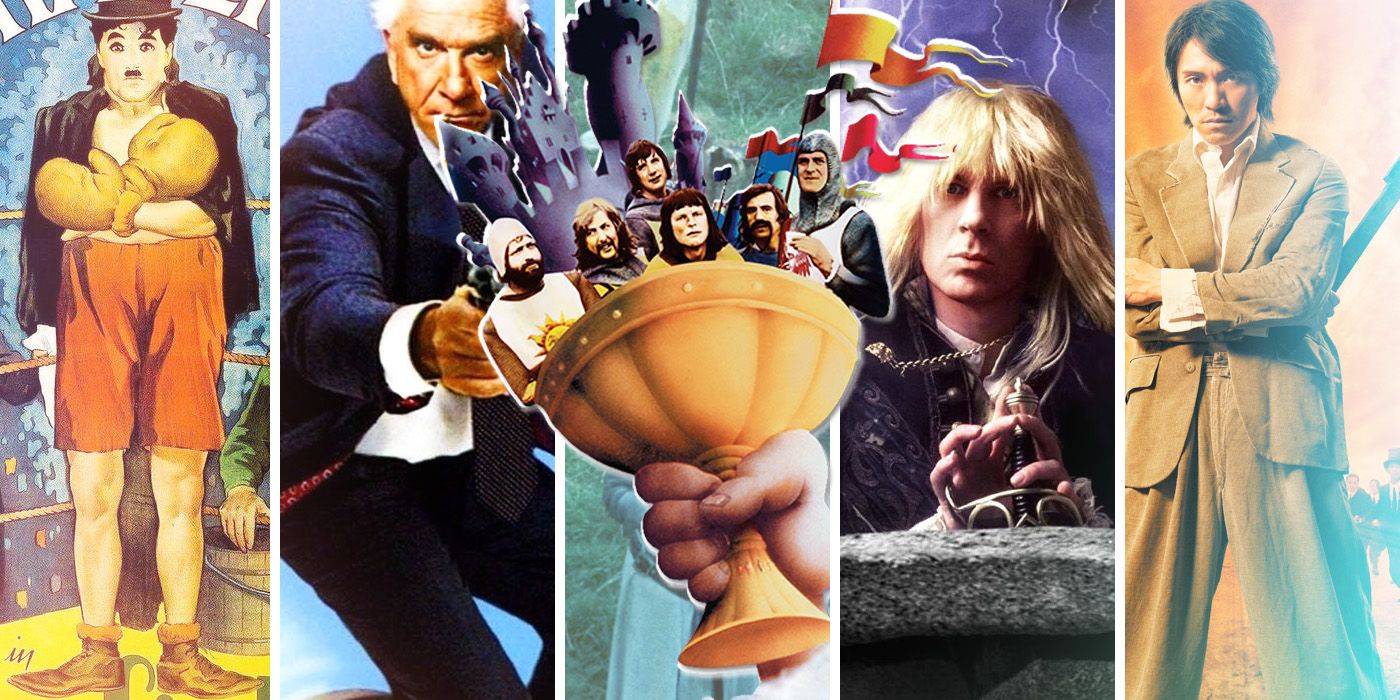
The 35 Best Comedy Movies of All Time, Ranked
Comedy is an evergreen genre, and the best of them still make people laugh decades after release. Here are 30 of the funniest movies ever made.Many consider Alfred Hitchcock one of, if not the, greatest filmmaker of Hollywood's Golden Era. In 1977, Brooks decided to parody Hitchcock's work in High Anxiety. In the film, Brooks stars as Dr. Richard H. Thorndyke, a psychiatrist with a severe case of acrophobia. Thorndyke accepts a job working at a mental institution run by doctors who seem more unstable than the patients themselves. The doctors have secrets they are willing to commit murder to keep safe. High Anxiety spoofs many of Hitchcock's most famous works such as Spellbound, Vertigo, North by Northwest, Psycho, and The Birds.
High Anxiety was Brooks' fourth box office hit in a row, with the movie grossing over $31 million against a budget of only $4 million. One of High Anxiety's biggest fans was Hitchcock himself. Always a perfectionist, Hitchcock's only criticism of the movie was that during the Psycho shower scene parody, 13 shower curtain rings were used, whereas in Psycho, there were only 10 rings. After screening High Anxiety, Hitchcock sent Brooks a case of wine with a note that stated, "Splendid! I wish I had done it." The American Film Institute nominated High Anxiety for their list 100 Years...100 Laughs.
5 Brooks Directs An "Epic" With History Of The World: Part I (1981)
IMDb Rating: 6.8
In History of the World: Part I, Brooks plays five different roles, Moses, Comicus, Torquemada, Jacques, and King Louis XVI. Dom DeLuise, Madeline Kahn, Harvey Korman, Cloris Leachman, Gregory Hines, Sid Caesar, and Orson Welles fill out the movie's all-star cast. Even though History of the World: Part I grossed nearly $32 million at the box office, many considered the film a failure, especially after the movie's negative reception significantly diminished its prominent opening weekend. At the Stinkers Bad Movie Awards, History of the World: Part I earned a nomination for Worst Song or Song Performance in a Film or End Credits and won the award for Most Painfully Unfunny Comedy. As is the case with many Brooks films, History of the World: Part I developed a cult following, increasing its critical reception over time. In 2000, History of the World: Part I was among the 500 nominees for the American Film Institute's list of American cinema's best comedies.
4 Silent Movie Not Only Parodies The Silent Era, It Also Spoofs The Business Side Of Hollywood (1976)
IMDb Rating: 6.7
One of the biggest risks of Brooks' career, Silent Movie is a dialogue-free slapstick comedy about a film director who struggles to make the first silent feature film in forty years. Although not a true silent film due to its synchronized score, sound effects, and color cinematography, Silent Movie is still an effective parody and homage to the silent comedies of Charlie Chaplin, Buster Keaton, and Harold Lloyd.
Silent Movie not only spoofs the silent era, it also skewers Hollywood. The film depicts studio executives as inept, money-hungry individuals who care nothing for the art of cinema and focus solely on box office results. Silent Movie also addresses the corporate takeover of Hollywood, with media conglomerates buying ownership of the studios. Roger Ebert wrote of Brooks and Silent Movie, "He's an anarchist; his movies inhabit a universe in which everything is possible and the outrageous is probable, and Silent Movie, where Brooks has taken a considerably stylistic risk and pulled it off triumphantly, made me laugh a lot." Silent Movie received four Golden Globe Award nominations, while the National Board of Review named the movie one of the year's top ten films. The American Film Institute nominated Silent Movie for their list of the best Hollywood comedies of the twentieth century.
3 The Producers Is One Of Cinema's Greatest Directorial Debuts (1967)
IMDb Rating: 7.5
One of the greatest directorial debuts in film history, Brooks launched his filmmaking career with the highly controversial The Producers. The film stars Zero Mostel and Gene Wilder as a theater producer and an accountant who plan to become rich by scamming backers to invest in a stage musical that is purposefully designed to flop. The play they choose for their scheme is Springtime for Hitler: A Gay Romp with Adolf and Eva at Berchtesgaden.
Brooks stated multiple times throughout his career that turning Hitler into a joke was the best form of revenge against the infamous dictator. Not everyone agreed. The Producers divided critics when it first premiered, with some calling it a brilliant comedy and others labeling it offensive and vulgar. Brooks stated people would stop him in public to complain about the film, while Jewish community leaders sent him dozens of angry letters. Despite the controversy, Brooks won the Academy Award for Best Writing, Story and Screenplay Written Directly for the Screen. In 1996, the Library of Congress voted The Producers into the National Film Registry. The American Film Institute placed The Producers 11th on their list of the best American comedies and the movie's song, "Springtime for Hitler," ranks 80th on the organization's list of 100 greatest film songs.
2 Young Frankenstein Is An All-Time Great Horror Comedy (1974)
IMDb Rating: 8.0
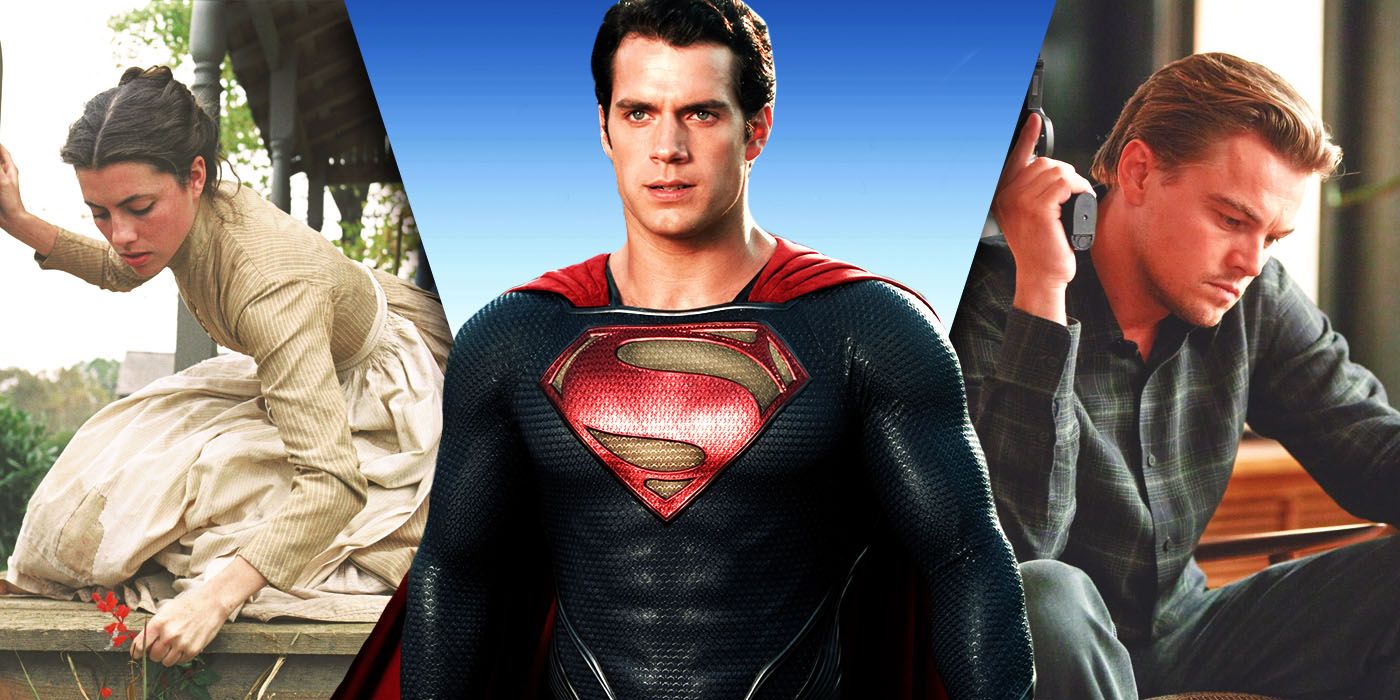
25 Great Movies That Deserve Better Endings
Sometimes a movie-going experience can be great up until the film's final moments. These great films needed better endings for their audience.In 1974, Brooks put together one of the most impressive individual years for a director in Hollywood history. The beginning of the year saw Brooks release Blazing Saddles, arguably his most celebrated work. As the year drew to a close, Brooks released Young Frankenstein, one of cinema's all-time great horror comedies. A parody of Frankenstein and The Bride of Frankenstein, Young Frankenstein stars Gene Wilder as Dr. Frederick Frankentein, a physician who takes up his grandfather's work of trying to birth life from the dead.
Studio executives worried how Young Frankenstein would perform at the box office due to its "outdated" use of black and white cinematography. Their uneasiness proved irrational when Young Frankenstein became one of the year's highest-grossing movies. Critical reception was overwhelmingly positive, with writers such as Roger Ebert calling the movie Brooks' "most disciplined and visually inventive film (it also happens to be very funny)." At the 47th Academy Awards, Young Frankenstein earned nominations for Best Writing, Screenplay Adapted From Other Material and Best Sound. Retrospectively, organizations such as Total Film, Bravo, and the American Film Institute each named Young Frankenstein one of the greatest comedies ever made. In 2003, Young Frankenstein entered the National Film Registry.
1 Blazing Saddles Is Brooks' Greatest Comedy (1974)
IMDb Rating: 7.7
Of Brooks' eleven feature films as a director, Blazing Saddles is his greatest work. A parody of the Western genre, Blazing Saddles follows a small town that stands in the way of the building of a new railroad. In an attempt to destroy the town, a corrupt politician hires a Black sheriff to oversee the town, hoping to cause chaos. Instead, the new sheriff becomes the politician's most formidable adversary.
Like The Producers, Blazing Saddles caused immense controversy when it premiered in theaters. While some found the film laugh-out-loud hysterical, others criticized the movie for its crass humor and evocative language. What many of Blazing Saddles' initial detractors missed was the film's poignant deconstruction of the Western genre and its biting commentary on race. Although controversial, Blazing Saddles managed to earn three Academy Award nominations and two BAFTA Award nominations. The American Film Institute voted Blazing Saddles the sixth-greatest American comedy of the twentieth century, the highest of Brooks' movies. In 2006, the Library of Congress selected Blazing Saddles for preservation in the National Film Registry.


